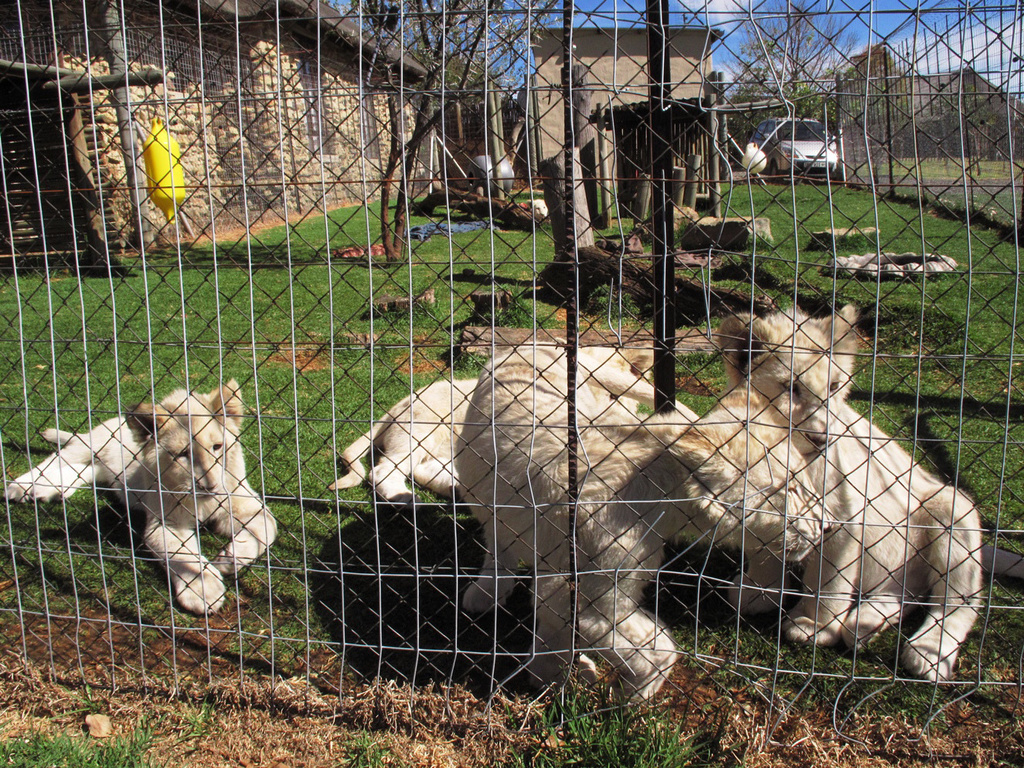Blog
Discover the four layers of the forest—and the animals living in it
Read more"Blood Lions" documentary exposes canned hunting horrors in South Africa
Lion breeders, traders, canned hunting operators, hunters, cub petting and cuddling facility owners, beware.
The “Blood Lions” story will blow the lid off the claims that what you do is in the name of conservation, education and research.
On July 22, the documentary feature film “Blood Lions” premieres at the Durban International Film Festival in South Africa, exposing the practices of predator breeding and canned or captive hunting as significant blights on South Africa’s otherwise proud conservation and ecotourism record.
The film is a collaborative project between a number of committed individuals and organisations that include the International Fund for Animal Welfare (IFAW).
Since the late 1990s I have been a journalist and campaigner, along with many others, working hard to have these horrors exposed and closed down.
When I started my research there were thought to be fewer than 1,000 predators in captivity. By 2005 when I compiled a detailed report for IFAW that was submitted to government, the numbers had grown to between 3,000 and 3,500. Today, according to breeding and government sources, there are more than 200 facilities holding anywhere between 6,000 and 8,000 predators, mostly lions, in cages or confined areas.
The numbers clearly show how the breeders and hunters on so many private South African farms continue to cash in on the commercial exploitation of lions and a variety of other species.

While there are many disturbing aspects to these industries, the false conservation claims being made in attempts to justify the activities stands out as being nothing other than fraudulent. None of these breeders or facilities is regarded as a legitimate conservation operation, and not a single recognized lion ecologist would use these captive bred lions in any relocation programme. Allowing these practices confuses conservation messages and priorities, and in some ways diverts valuable conservation funding away from where it is needed most.
Instead, these animals are being bred for use in a variety of lucrative revenue streams ranging from the petting and adoption facilities through the ‘walking with lions’ operations once they get older to being traded or slaughtered for the burgeoning lion bone trade. Most of the large males end up being shot in canned or captive hunts.
In 2013, close to 1,000 lions were killed by canned hunters.
If we don’t act now, South Africa could well end up in the shameful situation of having over 12,000 large predators in captivity by 2020.
With the release of “Blood Lions,” I sense we have the best chance to make a real and significant impact that will result in effective legislative change to end the commercial exploitation of lions and other predators.
--Ian Michler
The Big Cat Public Safety Act can help protect lions and tigers from living in captivity, poaching, and other types of vicious harm. Take action with IFAW today and urge the US congress to support the Big Cats Public Safety Act!
every problem has a solution, every solution needs support.
The problems we face are urgent, complicated, and resistant to change. Real solutions demand creativity, hard work, and involvement from people like you.
Unfortunately, the browser you use is outdated and does not allow you to display the site correctly. Please install any of the modern browsers, for example:
Google Chrome Firefox Safari